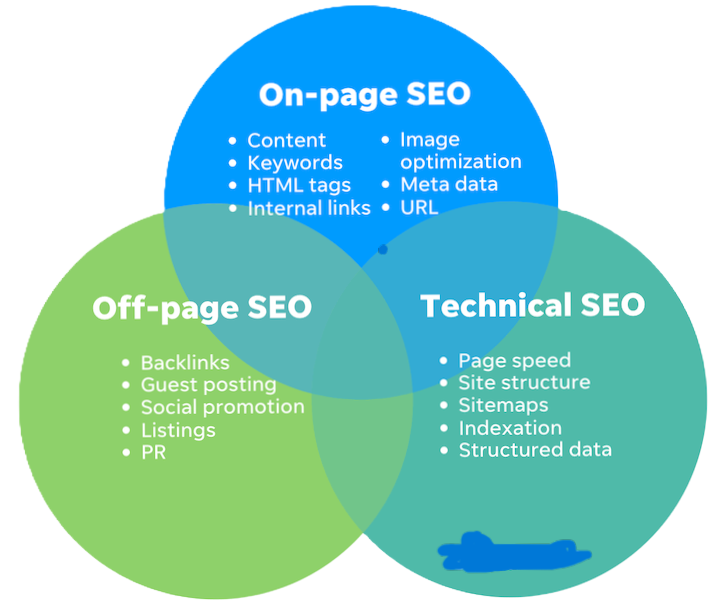SEO stands for Search Engine Optimization, a practice aimed at improving the visibility and ranking of a website in search engines such as Google, Bing or Yahoo. The goal of search engine optimization (SEO) is to increase the likelihood that a website will appear in the top positions on search engine results pages (SERPs) when users search for terms or words relevant to keywords.
Here are the main components of SEO:

On-page SEO – involves optimizing elements of your website, such as:
Content: Create relevant, useful and high quality content.
Keywords: Find and use relevant keywords that users are likely to search for.
Metatag – Improve the title, meta description and title tags.
URL Structure: Create SEO optimized URLs that are short, descriptive and include relevant keywords.
Internal Links – Links to other pages on your website to help search engines understand the structure of your website.
Off-page SEO: Focus on external factors that can affect your ranking, such as:
Backlinks – Ask other reputable websites to link to your content (backlinks are one of the most important ranking factors).
Social Signals: While not a direct ranking factor, social media activity and shared posts can help drive traffic and increase visibility.
Brand Mentions – Mentioning your brand or website on other platforms or in discussions can improve your SEO.
Technical SEO – involves improving the technical aspects of your website to make it more accessible and searchable by search engines:
Website Speed: Faster websites tend to rank better.
Mobile Optimization – Make sure your website is mobile friendly.
Sitemaps and robots.txt: Help search engines understand the structure of your website.
Fix Broken Links – Make sure all links on your site are working properly.
Structured Data: Add schema markup to help search engines understand the content and context of your pages.
Local SEO: This is a branch of SEO that focuses on improving local search visibility, such as when users search for businesses or services near them. Optimizing your Google My Business listings and getting local reviews and backlinks are key strategies.
Content SEO: High quality, relevant and optimized content is essential for good search engine rankings. This involves focusing on user intent, answering questions and providing valuable information.
Why SEO is important:
. It helps increase organic traffic to your website, i.e. visitors who find your website through search engines without paid advertising.
. It can bring long-term success to your website, providing a higher return on investment (ROI) than paid advertising.
. Search Engine Optimization (SEO) helps improve user experience by promoting faster, mobile-friendly and well-organized websites.
Overall, SEO is an important digital marketing strategy to increase visibility, drive traffic and establish a strong online presence.





